Premium Only Content
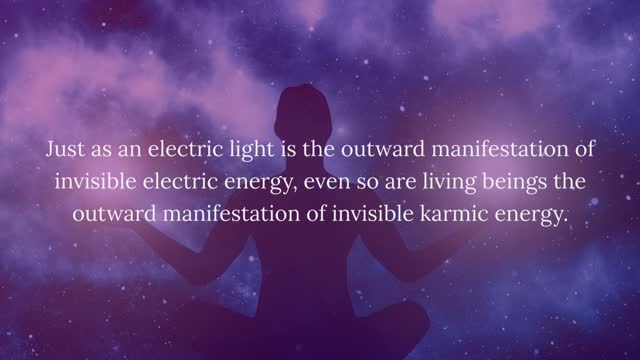
Buddhism: Karma, Death, and the Electric Light
Karma and rebirth account for many of our existing problems. They account for the suffering for which we ourselves are responsible. They explain the inequality of mankind.
They explain why identical twins who are physically alike, enjoying equal privileges, exhibit totally different characteristics, mentally, intellectually and morally.
They explain how we are the result of what we were, we will be the result of what we are; in other words, we are not absolutely what we were, and will not be absolutely what we are.
Above all, they account for the arising of omniscient, perfect spiritual teachers like the Buddhas who possess incomparable physical, mental and intellectual characteristics, which can be explained only by karma and rebirth.
A single life is not enough to prepare for one’s salvation. If a single life here decides the whole course of the future, then why does one life last only for a few weeks, and another for 70 or 80 years?
For one thing, the person who lives only a few weeks, risks less chance of eternal damnation than does the person who lives up to 80 years.
The person who lives only a few weeks cannot fully develop and mature his intelligence and understanding. He does not encounter all the pitfalls and the temptations that life abounds with.
What follows us after our death? Germs, bacteria, and viruses of the physical body never go with our body when we die.
However, the germs such as greed, hatred and ignorance that we have harbored in our mind never remain behind but follow with our consciousness even after death.
Only the effects of good and bad deeds follow us. All our material properties remain behind when we depart from this world. Our relatives and friends follow us up to the graveyard only.
Only the good and bad actions (karma) that we have committed during our lifetime follow us into the next life either to support us or to disturb us.
Karma has neither a beginning nor an end. If we understand karma as a force or a form of energy, then we can discern no beginning.
To ask where is the beginning of karma is like asking where is the beginning of electricity. Karma like electricity does not “begin.” It comes into being under certain conditions.
Conventionally, we say that the origin of karma is volition but this is as much conventional as saying that the origin of a river is a mountain top.
But when you attain enlightenment, your karma exhausts (kammakkhaya). Therefore, an individual’s karma has no beginning but it has an end.
Just as an electric light is the outward manifestation of invisible electric energy, even so are living beings the outward manifestation of invisible karmic energy.
The bulb may break and the light may be extinguished, but the current remains and the light may be reproduced in another bulb. The bulb can be compared to the parental cell of the body and the electric energy to the karmic energy.
In the same way, the karmic force remains undisturbed by the disintegration of the physical body, and the passing away of the present consciousness leads to the arising of a fresh one in another birth.
Source: Food for the Thinking Mind by K Sri Dhammananda
Music: www.bensound.com
-
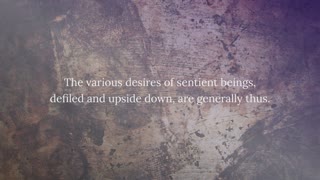 0:56
0:56
Buddhist Mind
3 years agoBuddhist Parable 33: Delusion
1571 -
 0:55
0:55
DreamingofMagic
3 years agoWdw electric light parade 2015
47 -
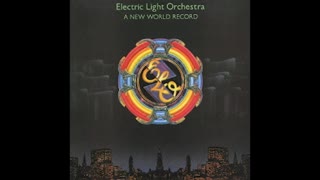 4:50
4:50
BEATLEMAN
3 years agoMY VERSION OF "TELEPHONE LINE" FROM ELECTRIC LIGHT ORCHESTRA
83 -
 3:45
3:45
BEATLEMAN
3 years agoMY VERSION OF "LIVING THING" FROM ELECTRIC LIGHT ORCHESTRA
128 -
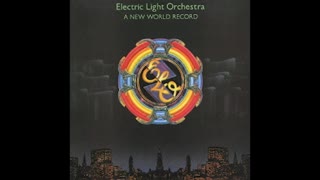 3:54
3:54
BEATLEMAN
3 years ago $0.01 earnedMY VERSION OF "DO YA" FROM ELECTRIC LIGHT ORCHESTRA
64 -
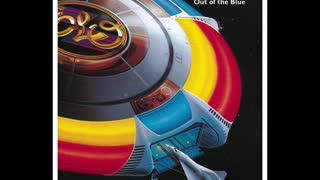 3:52
3:52
BEATLEMAN
3 years agoMY VERSION OF "SWEET TALKING WOMAN" FROM ELECTRIC LIGHT ORCHESTRA
60 -
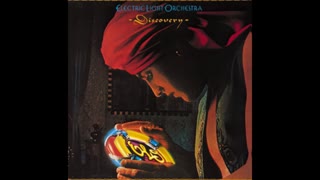 4:53
4:53
BEATLEMAN
3 years agoMY VERSION OF "SHINE A LITTLE LOVE" FROM ELECTRIC LIGHT ORCHESTRA
11.3K -
 4:04
4:04
BEATLEMAN
3 years agoMY VERSION OF "DON'T BRING ME DOWN" FROM ELECTRIC LIGHT ORCHESTRA
165 -
 0:23
0:23
EntertainmentVideos
4 years agoBuddhism
12 -
 3:35
3:35
Cshamas4
3 years agoElectric Kettle
310